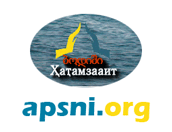The South Caucasus Network of Human Rights Defenders
Together for a European Future: Civil Society Forum takes the lead to support Eastern Partnership

[03.11.2013]
www.eap-csf.eu
11.10.2013
The fifth annual meeting of the Eastern Partnership Civil Society Forum held under the title Together for a European Future brought together more than 250 representatives of the civil society organizations from the Eastern Partnership countries and the EU, as well as senior government officials, diplomatic and donor community.
Opening speeches
The senior government officials opening the event underlined the importance of the Forum taking place for the first time in an Eastern Partnership country, as well as the importance of its input to the Eastern Partnership Summit in Vilnius and the crucial role of the civil society beyond Vilnius. They stressed that the Civil Society Forum is trusted by both politicians from the EaP countries and the EU and the donor community and that the Forum and the broader civil society will continue to be supported by the EU member states and institutions.
EU Commissioner for Enlargement Stefan Fule emphasized that the Eastern Partnership Summit in November should be a summit of delivery and for that to happen words and declarations on part of all the parties involved need to be followed by deeds. He said that Association Agreements – having the largest transformative instrument after enlargement – may be initialed or signed with several countries if all the essential conditions are met.
Commissioner underlined that Association Agreements, being only the technical instruments, cannot serve as the only basis for future relations between the EU and the EaP countries. Shared values and European vector is of most importance and countries without the Association Agreements will not be out of the EU’s radar.
Speaking on the role of civil society the Commissioner identified communicating the EU policies to the population and providing feedback on how policies work are of paramount importance.
Natalia Gherman, Deputy Prime Minister and Minister of Foreign Affairs and European Integration of the Republic of Moldova, expressed hope that civil society recommendations to the Eastern Partnership summit are forthcoming and that the civil society will produce and present the agenda from Vilnius to Riga.
Mr. Linas Linkevičius stressed the importance of EaP countries ownership of the reform process, irreversibility of reforms and having a clear vision beyond Vilnius.
The crowning moment of the first part of the day was distinguishing the efforts of Commissioner Fule: ‘in recognition of the support given to the civil society in the Eastern Partnership’ by presenting him a certificate of appreciation.
Azeri representatives of the Forum focusing the attention of the Forum participants on the political prisoners in Azerbaijan and campaigning against political prisoners in Eastern Partnership countries.
Kristina Vaiciunaite, East Europe Studies Center, Lithuania, Mikayel Hovhannisyan, Eurasia Partnership Foundation Armenia, Leila Alieva, Center for National and International Studies Azerbaijan, Andrej Yahorau, Center for European Transformation Belarus, Kakha Gogolashvilli, Georgian Foundation for Strategic and International Studies, Sorin Mereacre, East-Europe Foundation, Moldova, Oleksandr Sushko, Institute for Euro-Atlantic Integration, Ukraine, Hrant Kostanyan, Center for European Policy Studies, Belgium) - seven representatives of civil society shared the recent developments in their countries and the most burning issues as well as voiced their messages to civil society and the EU.
Armenian civil society representative informed that after the announcement of the government’s intention to join Russia-led Customs Union, the civil society continues to advocate for the highest possible level of integration with the EU and regards revealing the fact of Russia’s pressure leading to such a U-turn in the Armenian foreign policy as its role.
Azerbaijani representative drew attention to a highly polarised society and urged the EU to strike a right balance between promoting values and pursuing its energy security policy.
Belarus representative advocated for active promotion of reforms rather that superficial monitoring and warned against a pragmatic approach to jointly work in the spheres where there is interest of the EaP non-democratic governments rather than pursuing an ambitious value-based agenda.
Georgian representative underlined the importance of incentives in stimulating reform and sees civil society operating in the space between the government and the public and working actively with both.
Moldovan experts warned that signing and ratification of Association Agreements does not mean the point of no return and identified areas such as justice, business environment, health and education and anti-corruption, as key priorities for the civil society and media.
Coordinator of Ukrainian National Platform Oleksandr Sushko said that Association Agreement - is not an automatic guarantee of strengthening of the role of the public but joint product of European and Ukrainian (post-Soviet) bureaucracy, and a set of tools that it provides to civil society is too broad and specific.
Calendar
Archive
|
||||||||||||||||||||||||||||||||||||||||||
|


